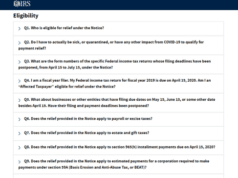
A good credit score is sought by everyone, it allows us the opportunity to make major purchases that come at significant points in our life, such as a car or a first house.
But what happens when our credit score is not as healthy as we would like, and what causes bad credit? Having a poor credit rating makes it difficult to take out any additional funds, a support line many of us will need in our lifetimes from unexpected bills to a loss of earning.
A credit score will have a big impact on your life, naturally you should endeavour to keep your credit score as healthy as possible. With a glut of advice on how to improve your credit score, below we share our top tips to stop yourself from falling into bad credit to begin with.
Many common habits can have a negative impact on your credit score, below FJP Investment shed light on the common mistakes people make that affect their credit rating.
1. Requesting Too Much Credit
A common mistake people make is that they take out too much credit on the assumption this will be paid back.
The major issue here is that you may fail to pay back the amount in the agreed period. For most of us, life throws us hurdles we simply cannot predict. Having insufficient funds to pay back the total amount over the agreed period will have repercussions on your credit rating.
2. Taking Out Credit Too Frequently
The above problem extends further however, every time an application is filled, an enquiry is sent to your credit report. This means that each time you take out money, your score reduces.
Applying for credit in too many places not only makes it difficult for you to manage, but even if all your credit is paid back, your score will have been impacted.
The best advice is to simply take out the amount necessary to cover any expenses that have come up. Do not use credit to sit on money or make unnecessary purchases. Resist any tempting offers to take out new cards, these will be frequent if you are managing your repayments well.
3. Avoid Late Payments
Perhaps this is easier said than done in some cases, but you should always aim to at least pay the minimum each month on your card. If money is tight, the minimum will suffice but of course if your situation is better, you should pay off more.
Late payments can stay on your record for seven years and increases the interest due on the total sum taken out.
4. Maxing Your Cards
This is always a risky move to make as a card owner. A percentage of your credit score is based on your debt to credit ratio. If your ratio is greater than 50 percent on your allowable credit, your score is likely to suffer.
You want to aim for between 10-30 percent for best results. There is certainly a ‘balance’ to find between the total debt spread across cards.
5. Closing Your Account
Once you have paid off a credit card, you may be tempted to close the account if you feel you will no longer use it. This is a common mistake, but this seemingly smart move can harm your credit score.
A proportion of your credit score is based on the age of your accounts and your level of credit utilization ratio. Longer payment histories bolster your credit score, if you have successfully paid of a credit card, you will want to keep it open as proof of repayment for future applications.
6. Missing Payments
As touched on earlier, although one or two missed payments will unlikely affect your score hugely, three or four consecutive months will certainly have an impact on your credit rating.
If the account is sent for collection or written off entirely, the impact can be severe. If you are struggling with the repayments, particularly if you have mitigating circumstances much like we have seen with the recent coronavirus pandemic, reach out to your bank or request a meeting with your bank manager to explain the situation.
They may be able to offer you alternatives or even a ‘credit holiday’, allowing you to get back on your feet and miss payments without damaging your credit score!
7. Co-Signing For Someone Else
Whilst you may feel like you are doing a favour to a friend or relative by co-signing a card to help with their application, the loan is then placed equally on your shoulders.
Not only does this immediately affect your credit-to-debt ratio but missed payments from the person whom you co-signed with will impact your credit rating. Generally, it is advised that you avoid doing this, but if necessary, make sure you have confidence and even proof they will repay the loan, expressing the importance this is paid off. Keep tabs on the account to ensure missed repayments do not spiral.
8. Not Checking Your Credit Report
Whilst it is not advised to check your credit report too frequently, it is advised that annually or bi-annually you check your rating to ensure that no fraudulent activity has passed you by on accounts you are unaware of.
9. Paying Only The Minimum
Again, as touched on earlier, you need to make sure you are aiming to pay more than the minimum each month.
Although this won’t have a huge impact in your credit rating, the total you will have to pay back will be significantly higher, with interest accrued every month. Paying off interest yielding debt such as a credit should be a top priority.
10. Having No Credit
Whilst it is evident that credit can lead to issues as flagged above, you also suffer by having no credit history.
Good credit, even small amounts, show evidence of repayments to future lenders. It is advised that everyone have a credit card, make a few small purchases each month and pay it off in full at the end of the month. Interest is minimal if any and you are building a credit history.
You May Like These Articles As Well:
Which Is The Best Online Dispensaries?








